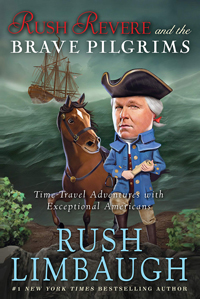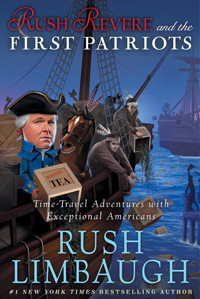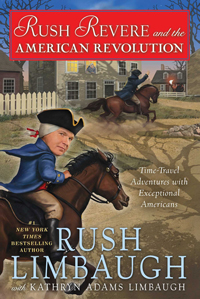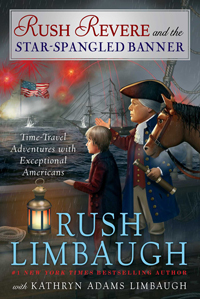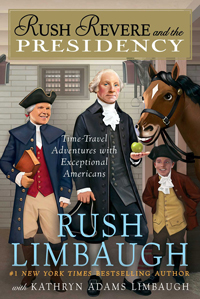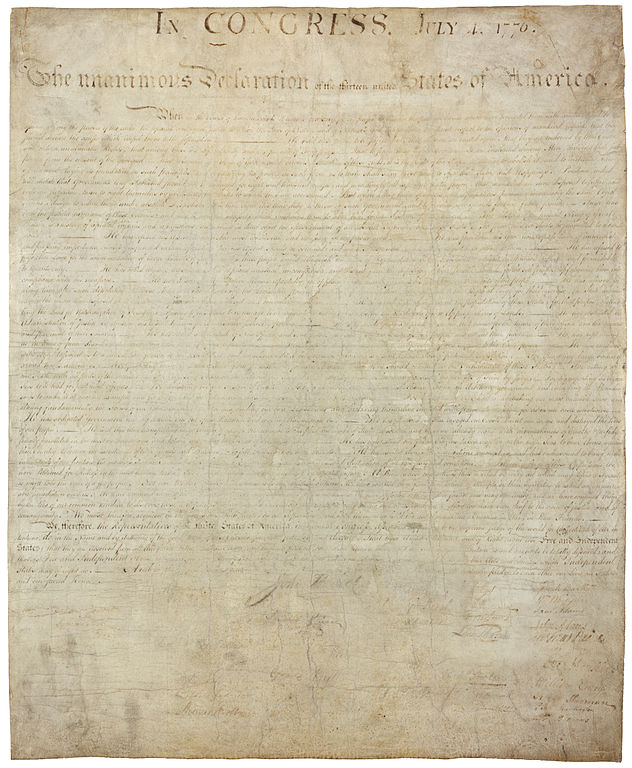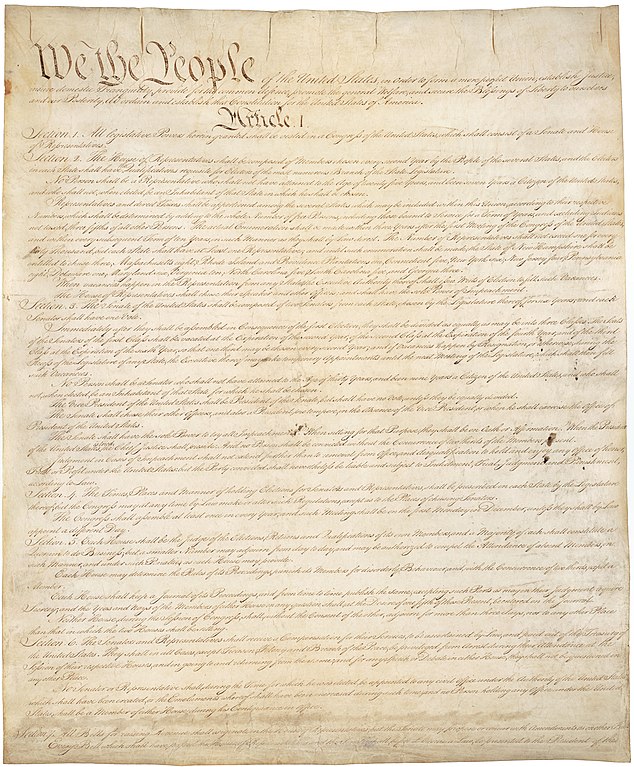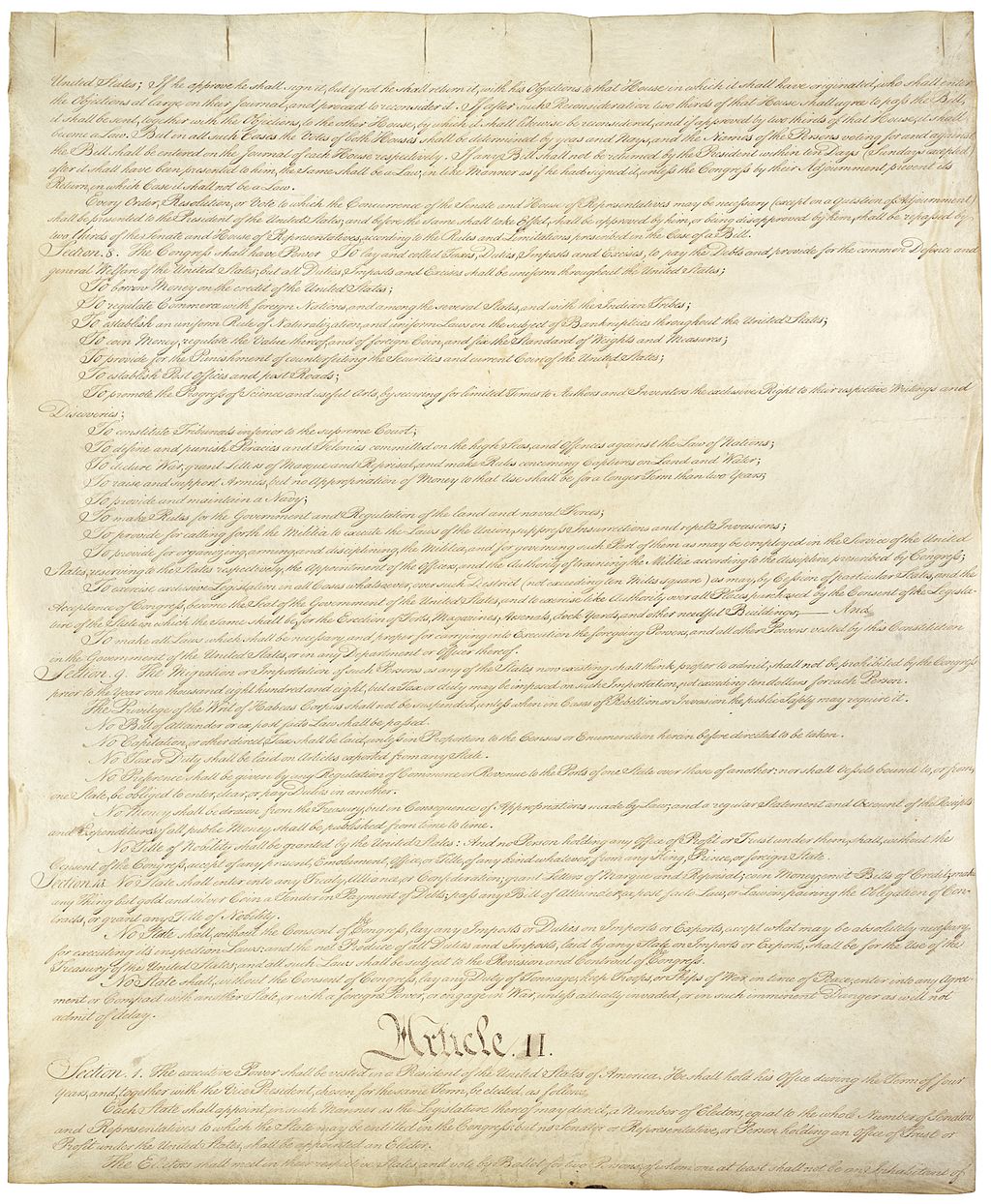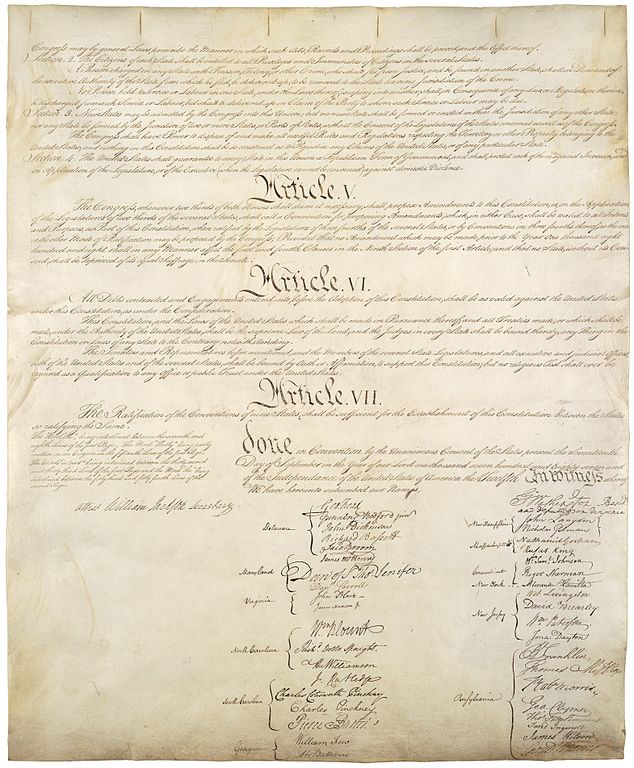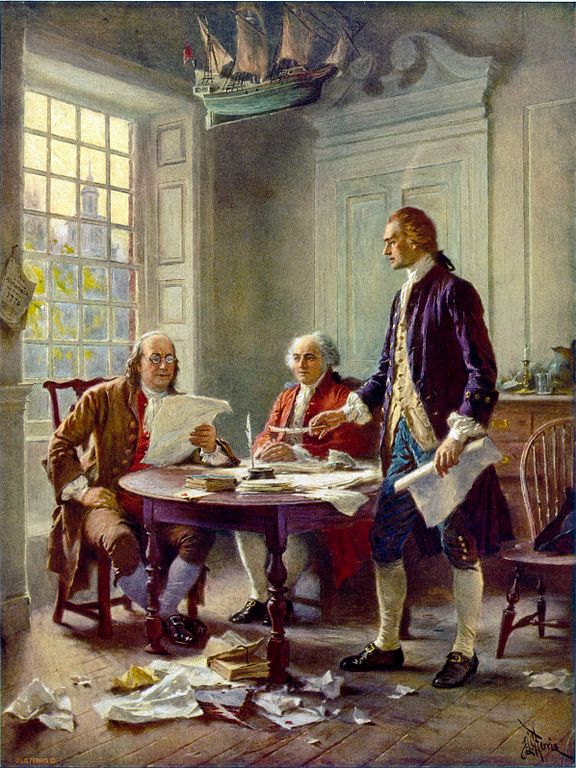Rush Revere Notes
(Learning from the Best)
Please note: I’ll be leaving for Israel soon to complete my collection of aerial and landscape photographs for BibleLandImages.com. I will begin notes for Rush Revere and the First Patriots when I return in February 2023. For more information, see My Passion on this website.
On June 2, 2022, I began publishing my notes on the Rush Revere series of books, with new notes coming out every Thursday by 8:00 AM (MT). The purpose of Rush Revere Notes is to highlight principles I’ve learned from Rush’s books that apply everywhere and at all times. These principles are worth considering as we contemplate the future of America.
Be sure to purchase, read, and consider carefully the lessons taught by the fictional character Rush Revere and his friends (America’s Founding Fathers) from a personal copy of the books so you can mark and take notes as you go. No one explains American history better than Rush Limbaugh and his wife, Kathryn. Few people love America more.
You should read Note 1:1 first because its subject is foundational to everything Rush writes about in the Rush Revere books. The notation 1:1 refers to Book 1 (Brave Pilgrims), note #1.
Note 1:16
God and Sacrifice
Brave Pilgrims: Chapter 10
September 15, 2022
William Bradford explained to Rush Revere how they used what became known as Plymouth Rock to guide the Mayflower back to the spot after they found it on one of their expeditions. Bradford continued, “I have tried to be like this granite boulder, steadfast and immovable. It has not been easy. But God has made the impossible possible. The Bible says we should build our house upon the rock. I have thought about this since we arrived. I have thought about this through each of our trials in the New World. Though the winds may blow and the storms may rage, the rock does not cower in fear.”
Rush Revere asked, “Do you know why?”
Bradford responed, “It is fearless because it knows where it belongs.”
Rush Revere paused and said, “And you know that the Pilgrims belong here at Plymouth Bay.”
Bradford’s response is a fitting summary of Brave Pilgrims and its message:
“Yes, and each of us can be fearless and strong like this rock when we know, without a doubt, where we belong and what we should do. God helps us to know these things. I knew we would make it to the New World. I knew we would find a home like Plymouth Plantation. I knew, eventually, that I would need to give each family their own piece of land and allow them the freedoms to enjoy the profits of their labor. And I know, today, that this land will prosper and become a great nation. And it will remain a great nation as long as we are one nation under God.”
Rush Revere marveled at what the Pilgrims accomplished and survived given the conditions of the New World in 1620, then made this critical observation: “They started a new way of living that would influence the making of the greatest country in the world.” A new way of living! Here is the key to the greatness of America. What happened at Plymouth Plantation had never happened before, not in the history of the world.
Every Thanksgiving, Rush Limbaugh related William Bradford’s story and the start of Plymouth Plantation. It wasn’t until I read Brave Pilgrims that I fully understood why Rush loved the story so much. There had been other colonies as early as 1607: the London and Plymouth colonies, the Popham Colony, and the Jamestown settlement. None of these accomplished what William Bradford did in 1620 because the earlier groups had not discovered Bradford’s “new way” of living, which included property ownership and working for yourself and your family to better the conditions of your life.
Rush Limbaugh wrote Brave Pilgrims or another reason. He wanted us to understand that “religious freedom comes with a price.” The pilgrims were willing to give up their lives for it; they were ready to lose the people they loved the most for it. They persevered because of it, because they believed in God and what He wanted for them. Believing and trusting in God is the beginning of freedom, coupled with a willingness to sacrifice all for the privilege of following Him.
Conclusion: Rush Limbaugh understood more than anyone that the Pilgrims’ sacrifices were not in vain. William Bradford, his colony, and what they accomplished, together with the Mayflower Compact, “truly made a difference in the making of the United States of America.” It was something Rush never forgot. To make sure we never forget, he reminded us every Thanksgiving. God bless the memory of Rush Limbaugh, what he stood for and defended, and for the greatest of his heart.
Note 1:15
Property and Freedom
Brave Pilgrims: Chapter 10
September 8, 2022
When Rush Revere and William Bradford met on the first Thanksgiving, Bradford was glad the time traveler could be with them. Bradford said, “We all have so much to be grateful for on this day.”
Rush Revere’s response gave Bradford a chance to explain why the Pilgrims were happy. “Yes,” Rush Revere agreed, “everyone seems so joyous, far different than a short while ago.”
Bradford did not disappoint: “It’s true,” he said. “But the real difference came when every family was assigned its own plot of land to work. That was the turning point! They were permitted to market their own crops and products. This had very good success. Men and women worked harder and much more corn was planted than otherwise would have been.” William Bradford explained the essence of capitalism with a simple, straightforward observation. Owning private property leads people to work harder and produce more! Participants end up with more or less material wealth than others, but everyone benefits.
Rush Revere asked another question to get more out of Bradford: “And you say that it all happened soon after you stopped sharing the profits that gave every man a common share or equal amount?”
Bradford responded, “Yes, at first we really had great expectations and high hopes that all the people would embrace the idea of a commonwealth. But it didn’t work. In fact, it almost ruined us. We learned that it wasn’t actually fair at all.”
In principle, fairness exists when two people are free to make the same or similar effort at accomplishing some task. Consider, for example, the Parable of the Talents taught by Jesus (see Matthew 25:14-30). A master put three servants in charge of his goods while he was away. He gave them different stewardships based on their abilities and talents. The servants who made a similar effort (both doubled their stewardships) received the same reward (heard the same response): “Well done, thou good and faithful servant: thou hast been faithful over a few things, I will make thee ruler over many things: enter thou into the joy of thy lord.” How much they accumulated for their master was not the issue. The effort they put into their work and how they individually developed as human beings were the critical factors.
Standing near Rush Revere and Bradford, Squanto made another powerful observation: “William is a smart man. He gave people their own land. He made people free. No more slaves to a common house. They set up trading posts and exchanged goods with Indians.” The Pilgrims were free to work, achieve, and provide for themselves and their families. The more they produced beyond what they needed, the better it was for the entire community. Everyone benefited.
In this final chapter of Brave Pilgrims, Rush Revere summarized the material side of America’s extraordinary success as the freest and happiest country in the world. It started with the Pilgrims, one hundred and fifty years before America’s founding. They learned that property and private ownership, coupled with hard work, lead to happy outcomes for people willing to embrace freedom’s promise. Forcing people to be the same by doing and receiving the same (or so it goes) leads to misery for most people. Socialism never works as intended. It’s a lie, a ruse to give wicked men and women power over the people.
Conclusion: Owning and working one’s own property (capitalism) is freedom and leads to happiness. The free market always works, as long as the people who embrace it enjoin one more key principle (see next week’s final note). The United States is the world’s best example and longest surviving capitalist country. May it ever be so!
Note 1:14
The First Thanksgiving
Brave Pilgrims: Chapter 9
September 1, 2022
Rush Revere received William Bradford’s invitation to the very first Thanksgiving. The occasion didn’t have a name in the 1600s but was a celebration of a bountiful harvest. The Pilgrims were grateful for what they received and their new Indian friends, who taught them about planting and growing crops in the New World. Rush Revere wanted his students, Freedom and Tommy, to experience for themselves what he called the Pilgrims’ first harvest festival, explaining, “history is a mystery until it is discovered.”
Rush Revere, through modern technology, let the students in his class view what he called a “documentary” of the Pilgrims’ first Thanksgiving, asking them to “pay attention to what’s different and what’s the same” when they thought about their own Thanksgiving.
Of course, no one can produce a documentary of history the way Rush Revere did by visiting events as they ocurred in real-time. If we could, we would know what took place. And, assuming we were honest, depict the events accurately when writing about them for others. We wouldn’t think to twist or change what we saw through a false narration of events.
What is true of history can also be true of current events. Some people fail to think critically about what they see and experience in their day-to-day lives, permitting someone else to explain it. Depending on the person who does the explaining (i.e., interpreting), individuals may get a false impression of the reality they see around them. They know different in their hearts but allow someone else to misguide them.
Rush Revere had a purpose in mind when he asked his students to compare their Thanksgiving to the Pilgrims’ harvest festival. To do so, the students would need to hear the conversation between Rush Revere and William Bradford in the final chapter of Brave Pilgrims presented next week.
Conclusion: How do we “discover” history? Ideally, we would experience it like Rush Revere, and his students did. But even then, a critical element would be missing. Rush Revere, Freedom, and Tommy went back and forth between the present and the past, often with several months between visits. They didn’t share the Pilgrims’ lives leading up to their subsequent encounter. They didn’t suffer with them or feel their loss when a loved one died; they witnessed the end of the Pilgrims’ suffering (for that year). Rush Revere and his students didn’t know the pain of a cold winter without adequate food, clothing, and shelter the way the Pilgrims did. For any of us to come near it, we must first remember (reexperience) when we were cold or hungry or alone or lost a loved one under trying circumstances; and then try to relate our experience to what the Pilgrims went through. Remembering is key. We will fall short, to be sure, because we have a way of escaping the cold and physical suffering. The Pilgrims did not. It is impossible to assess history properly without evaluating the present and what makes our lives what they are because the Pilgrims and others endured for liberty and religious freedom. An impartial consideration of history takes courage, determination, and, above all, it demands honesty and a desire to come as close to the truth as possible without judging the past based on current progress and realities.
Note 1:13
The Work Incentive
Brave Pilgrims: Chapter 8
August 25, 2022
We read about the work incentive in earlier chapters of the book. In this chapter, we begin to see it as the book’s main subject, how it relates to American exceptionalism (see Note 1:1), and why it’s crucial for a correct view of American history. The work incentive gives rise to other vital topics, each critical for maintaining liberty as well as America’s unique culture. Several of these were touched on in previous notes. Rush Limbaugh expands on these subjects throughout the Rush Revere series.
Rush Revere calls William Bradford one of his “all-time heroes.” The reason? Bradford learned from experience how to do what was best for the people and did it. If you don’t care about other people as much as you care about yourself, you won’t accomplish anything truly worthwhile. If you don’t act on what you know, the knowledge you’ve gained is totally useless except to benefit yourself. Self-interest and self-centeredness are unrelated concepts; each has its own reward. Self-interest serves many, while self-centeredness serves only one.
When he caught up with Bradford, Rush Revere made this observation: “It’s great to see the settlement growing.”
Bradford responded:
“Well, no, not exactly. I can’t remember if I told you while we were on the boat or not, but we have a contract with our sponsors in England, the ones who helped us pay for this voyage. The contract says that everything we produce or harvest, like food, furs, furniture, etc., must go into a common store and each member of the community is entitled to one common share. Eventually, we hope to make enough to pay back our sponsors in England. But I’m finding it difficult to get our people to work.”
In his response, Bradford explained the history behind the common house (see Note 1:10), and why it was first thought of as a good idea.
Rush Revere inquired further:
“So you’re saying that everything that is produced, all the profits, go into, let’s say, a box. And then everyone gets one equal share of what’s in the box regardless of how much work they do or how much they produce.”
Put this way, anyone, even a young person, can grasp why socialism is wrong and should be avoided at all costs, but more on that later. For now, we’re discussing only the principle. Bradford answered Rush Revere:
“Correct, and some people figure that it doesn’t matter how much they work because they’re still going to get an equal share of what’s in the box. I can’t really blame them. I mean what is the incentive to work hard if you know the other person will get the same reward doing little to no work?”
Bradford’s answer is the background to the previous note about “Football and the County Fair” because it led to a discussion about fairness between Rush Revere and his students. Here, Rush Revere teaches the lesson as it applied to the Pilgrims: “They initially tried to make everyone winners but soon realized the attempt was failing because not everyone wanted to work hard enough to be champions. The truth is, when we try to make everyone a winner, no one’s a winner.” Any attempt to create equal outcomes is not only unfair but impossible to achieve. It’s a talking point that enables bad people to satisfy their lust for power at the expense of everyone else. Its ultimate purpose is to get your support, which they need in the early stages of their quest. Once achieved, they confiscate everything they can from the producers, making life miserable for everyone except themselves and the subordinates they require to maintain their power after they lose your support.
From his personal experience with the concept of a “common house,” Bradford figured out the solution to the problem of slow community growth. It was “for everybody to keep what they produced.” Giving the Pilgrims their own plot of land motivated them “to work harder and be more creative with their skills, knowing that anything they produced would be theirs to keep.” Bradford began to realize that “a little competition could be healthy!” Rush Revere agreed: “Yes, it’s quite brilliant! Those who work harder will likely produce more and then be rewarded more. Those who don’t will not.” You may have sensed that Rush Limbaugh was being sardonic with his “It’s quite brilliant” comment. Bradford’s conclusion wasn’t brilliant at all; it was common sense! It represented a true principle, similar to another one: When we stand before God, He will judge us by what we did with our lives and not by what our neighbors did. Also common sense. The connection between the two is real. It’s what makes them equally valid and true.
Conclusion: When everything belongs to the community, people do less, not more. The ones who work harder start wondering why they should put their profits into a “common box” when people who choose not to work “receive an equal share of the profits.” It’s one of life’s undeniable truths: Any attempt to force equality results in the greatest misery for everyone involved, producers and non-producers alike.
Note 1:12
Football and the County Fair
Brave Pilgrims: Chapter 8
August 18, 2022
In this chapter Rush Limbaugh, as Brave Pilgrims’ author, leads us closer to the book’s central purpose and final lesson. The main characters, Rush Revere and his students introduce us to actual events that happened as Liberty successfully transports us to another time and place in American history. By now, you realize that the book required as much research as it did creativity.
Consider, for example, the young Pilgrim named Francis Billington. We met him in chapter five when the fourteen-year-old nearly caused a disaster on board the Mayflower by shooting a musket near a barrel of gunpowder. In this chapter, we meet him again, this time in a tree from where he discovered a “giant lake of fresh water” some distance away. Francis Billington was real; he shot the musket and found the lake. In recounting the latter story, Rush Revere said,
But from what I know Francis Billington really did find a giant freshwater lake about two miles inland. . . William Bradford doesn’t believe him at first. But, finally, Francis convinces the Pilgrims to scout it out and sure enough, they find it. And the fish and fowl that the lake provides becomes a huge blessing for the colony.
Rush writes about real people with a flare that makes history live for young and old alike. The great historian David McCullough, who recently passed away, did the same for adults with his narration of history in books like 1776 and John Adams. In a letter paying tribute to the author, Dr. Larry Arnn, president of Hillsdale College, said this: “David McCullough knew we do not find the meaning of our lives in meeting necessity alone. We want not just to live, but to live well, and living well is never just a matter of riches.” True history, relevant history, doesn’t contain only facts, which can be misleading if misused with a fraudulent purpose. Proper history includes the story; it attempts to explain why things happened the way they did without projecting modern values on earlier times. Here we discover the highest meaning of history. It’s in the turning points and what made them so.
This chapter introduces the first stage of a significant turning point in American history. It came as the Pilgrims began learning by experience what liberty means and how to “live well” the one life God had given them. But before I get to the details (see next week’s note), Rush Revere prepares us with two stories. The first involved Tommy’s football coach and team. The second came as Tommy described his hometown county fair to William Bradford.
Tommy’s coach asked, “What would you think if two teams playing against each other get the same amount of points regardless of how many touchdowns they make?”
Tommy responded with, “What’s the purpose of playing if nobody can win?”
The lesson came in the coach’s answer: “Exactly! So get out there this Saturday and play hard! Play to win!” Succeeding in any endeavor, becoming the best there is, requires hard work. The coach said he would cut from the team anyone not giving his best effort. “And if you don’t think that’s fair,“ he said, “then you don’t understand what it means—be a champion!”
God wants each of us to live well and be a champion in life. He teaches us through life’s experiences, on the football field, in our professions, and through human relationships. Are we kind? Do we endeavor to help others? Do we put the needs of a spouse above our own? On the football field, not every team can win the championship. Every player, however, can be a champion through hard work and personal resolve regardless of the outcome on the team level.
The second story is similar to the first. Tommy explained to William Bradford the idea behind a county fair, another kind of competition: “People from all over come and see who has the biggest pumpkin or best pies or the largest pig. And the winner gets a cash prize like profits and a cool blue ribbon. People love it. They work really hard to try to have the best garden. They grow amazing vegetables like squash and cucumbers and tomatoes. My mom makes the best salsa and she enters it into the county fair every year and she’s won three times!”
Some people think competition is destructive because it isn’t fair. And by fair, they mean not everyone gets to win; not everyone gets a trophy. And yet, often, it’s competition that brings out the best in each of us. Winning is the incentive that teaches us to work hard for something we want to achieve. Disappointments over not winning are also part of life. They come with different lessons, which we are also meant to learn.
Conclusion: God never intended that life would be fair in all its dimensions. But when it comes to character and to living well the one life God gave us, everyone can succeed. We can all be more thoughtful, patient, and willing to serve. In short, we can all be more like God and His Son, Jesus Christ. The ultimate purpose of life is to achieve God’s goal for each of us, an outcome equally achievable by all of us.
Note 1:11
A Friendly Visit
Brave Pilgrims: Chapter 7
August 11, 2022
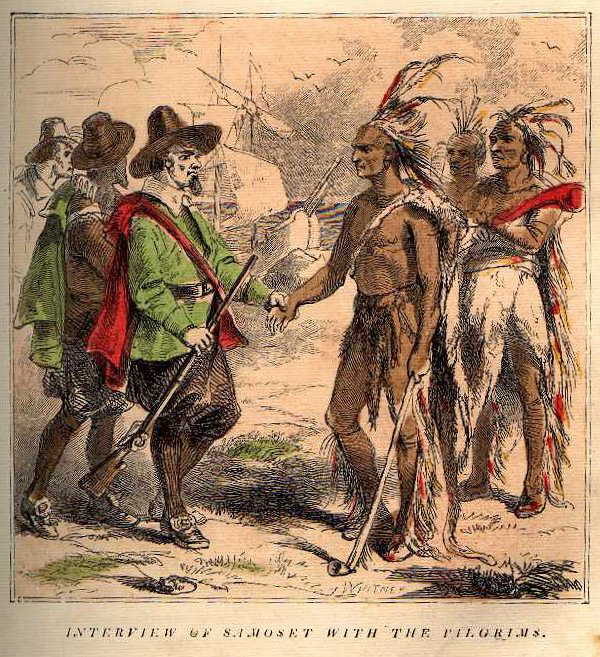 In this chapter Rush pulls together four subjects to prepare us for the messages in the book’s final chapters. The subjects are as follows:
In this chapter Rush pulls together four subjects to prepare us for the messages in the book’s final chapters. The subjects are as follows:
- We discover why there were only seven houses when Rush Revere and his friends visited the Pilgrims after their first winter in America.
- We are reminded about the purpose of the Mayflower Compact.
- We meet Somoset, a friendly Indian who befriended the Pilgrims and sought to help them.
- We learn about two types of leaders: one is more careful, always standing guard with musket in hand, ready to protect his people at all costs; the other is also careful but more trusting of others. Nevertheless, he verifies his instincts before moving forward with important decisions.
The Pilgrims were courageous people who faced an untamed wilderness in harsh winter conditions. Somehow they had to survive. Despite their best efforts, however, half the company died the first winter due to “a combination of lack of food, the severe cold, and disease.”
When Rush Revere met William Bradford this time, he noticed how tired Bradford looked. He couldn’t blame him: “After all, he traveled across the entire ocean in a small boat under the hardest conditions, landed in a new place that was completely barren, and needed to build a town for all of the people who relied on his leadership.” Bradford was desperate to help the people who followed him. How could he balance liberty and still provide for the needs of his people?
The Mayflower Compact was more than a decision of the Pilgrims to stick together. Its purpose was “to provide just and equal laws for everyone at Plymouth Plantation.” The laws applied to everyone, in the same way, putting people on equal footing. Such a document could not provide for the same or similar outcomes due to natural human differences. Some people are willing to work harder than others. Some are more gifted, which doesn’t make them better. Individual results ares always different, and they cannot be otherwise. Sufficient food, clothing, and shelter are liberty’s only guarantees. They provide for life and the opportunity for people to pursue happiness, each in their own way.
Next on the scene was Somoset, a friendly Indian who learned English from fishermen who came for cod. He explained to Bradford and the others that Indians who lived in the area died of the plague. “Yes,” he said. “Many, many die. Much sadness. And you. Your people. Much die from cold and sickness. Massasoit knows. Waiting. Watching.” Massasoit was a “great and powerful leader” who observed the Pilgrims from a distance.
Myles Standish was the main military man charged with protecting the Pilgrims. He remained on guard during the encounter with Somoset. Standish told him, “Tell Massasoit that we have guns, bullets, armor, and powerful cannons. We are here to stay and we hope we can be friends.” The message was clear: we want peace but are ready to defend ourselves if you do not. Bradford said they looked forward to meeting Massasoit and another Indian named Squanto (more on him next week) and asked Somoset if he would bring them next time.
Rush Revere explained the difference in approach between Standish and Bradford: “I’m guessing William had a gut feeling. He relied so much on God’s grace to protect them traveling across the rough waters for so many months, he just had to trust that this would be okay, too! It’s really pretty amazing.”
Conclusion: The Pilgrims faced incredible hardships during their first year in America. Many died, teaching us that God doesn’t intervene to protect every individual. Suffering is also part of life. And, for those who believe in God, this life is not the end but the beginning. God is in charge and knows all things. The colony’s surviving members laid the foundation of the greatest nation the world has ever known. It would occur in another 150 years with the Declaration of Independence, the US Constitution, and liberty and freedom for its people. William Bradford may not have understood the Pilgrim’s whole purpose, but he trusted that God knew. He led the Pilgrims with faith in God and the future.
Note 1:10
The Common House
Brave Pilgrims: Chapter 6
August 4, 2022
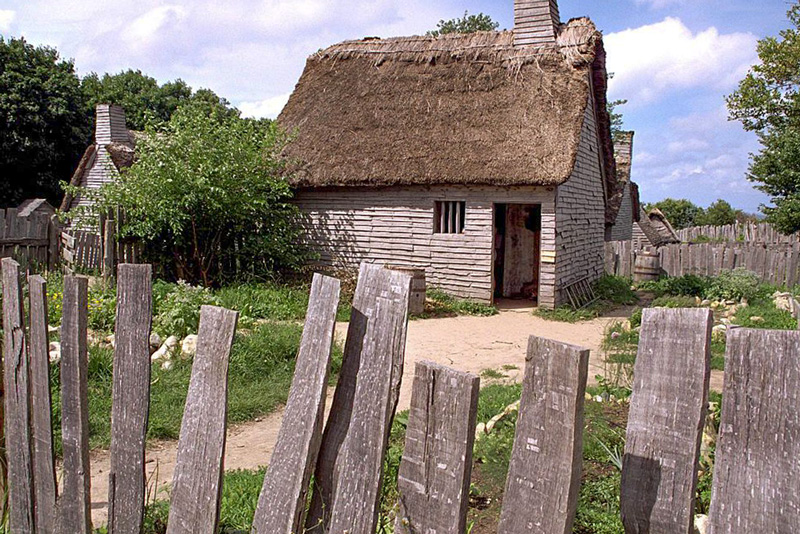 At the end of chapter six, Rush Revere introduces us to what the Pilgrim’s called the Common House, a building owned by the people equally. William Bradford explained: “We’ve agreed to set aside our want of personal property or personal gain and instead create a community where the houses and buildings and profits belong to everyone. We are trying to create a fair and equal society.” Rush Revere thought of the Pilgrims on the Mayflower. He believed they were “self-reliant and ambitious. People who came to America to start a new life, build their own homes, work for themselves, and be free people.” Coming from the future, knowing something of the past, Rush Revere recognized that William Bradford’s proposition was the opposite of fair and equal. He knew it was not freedom.
At the end of chapter six, Rush Revere introduces us to what the Pilgrim’s called the Common House, a building owned by the people equally. William Bradford explained: “We’ve agreed to set aside our want of personal property or personal gain and instead create a community where the houses and buildings and profits belong to everyone. We are trying to create a fair and equal society.” Rush Revere thought of the Pilgrims on the Mayflower. He believed they were “self-reliant and ambitious. People who came to America to start a new life, build their own homes, work for themselves, and be free people.” Coming from the future, knowing something of the past, Rush Revere recognized that William Bradford’s proposition was the opposite of fair and equal. He knew it was not freedom.
Rush Limbaugh, who is telling the story through Rush Revere, Liberty, and the students, asked a question of his readers. He didn’t jump into a lesson about socialism, its pitfalls, and why it cannot work and never has. Instead, he leaves the reader to come up with their own conclusion using reason as the events of the story unfold. Rush guides the reader to the answer by asking simple, logical questions. He does it in this chapter and elsewhere without giving away the answers, which will come later. Rush is preparing the reader to come up with solutions independently.
Rush Revere acknowledged that William Bradford’s notion of “fair and equal” sounded appealing, living in a society “where all your choices are made for you,” but wondered, “Is that freedom?” And then, “with some courage,” he asked William Bradford: “You say you’re trying to create a fair and equal society. Do you think your people will find joy and happiness with this kind of common control?” Bradford responded:
It will be a test, for sure. At first, the Common House seemed very attractive. This kind of control should guarantee our prosperity and success. But recently I’m beginning to doubt whether everyone will work their hardest on something that is not their own.
Rush Limbaugh introduced three new but important ideas in Bradford’s answer: the notion of government (without using the word) control, hard work, and owning property. He related them to Bradford’s doubts about the workability of this new order. He had Rush Revere preface his question to Bradford using these words, “with some courage,” thus subtly teaching the reader that asking questions to get at the truth takes courage.
Next, Myles Standish jumped in with this observation:
“All these men are working on the same project. All week they’ve used axes and saws to fell trees and transport them to this site. The trunks will be woven together with branches and twigs and then cemented with clay and so forth. Some men do little and some men do a lot. When this house is finished, who deserves the benefit and blessing of having this roof over their head?”
Through Standish, Rush Limbaugh introduced the next idea, a reality of life: Some people do a lot, some do little. No one works the same. Rush followed up by asking a second critical question of the reader: “Who deserves the benefit and blessing that results from personal effort?” Rush Revere, pondering the question, commented: “It didn’t seem fair for everyone to be rewarded equally when people who were able to work chose not to.” His observation strikes at the heart of the matter, which the reader does not fully comprehend at this point, but will later. Socialists, people who advocate for a common house, claim they seek a “fair and equal” society. But in reality, their society is not fair to anyone. And it cannot produce equality based on government control of the wealth, which takes us back to private property ownership and its purpose. Without giving the answers, Rush Limbaugh introduces them by using questions he wants the reader to think through on their own.
Conclusion: As we will see, a fair society is one in which common rules apply to everyone the same—rules to which the people give their consent. An equal society in terms of personal property is impossible to achieve. It’s an idea socialists use to gain support. The promise of equality sounds good, but its advocates cannot fulfill it. In the end, socialist ideology leads to the worst kind of servitude. Through observations followed by questions, Rush Revere introduces the reader to crucial concepts that lead to misery or happiness, bondage or freedom, depending on how you use them.
Note 1:9
Enduring Hardships
Brave Pilgrims: Chapter 6
July 28, 2022
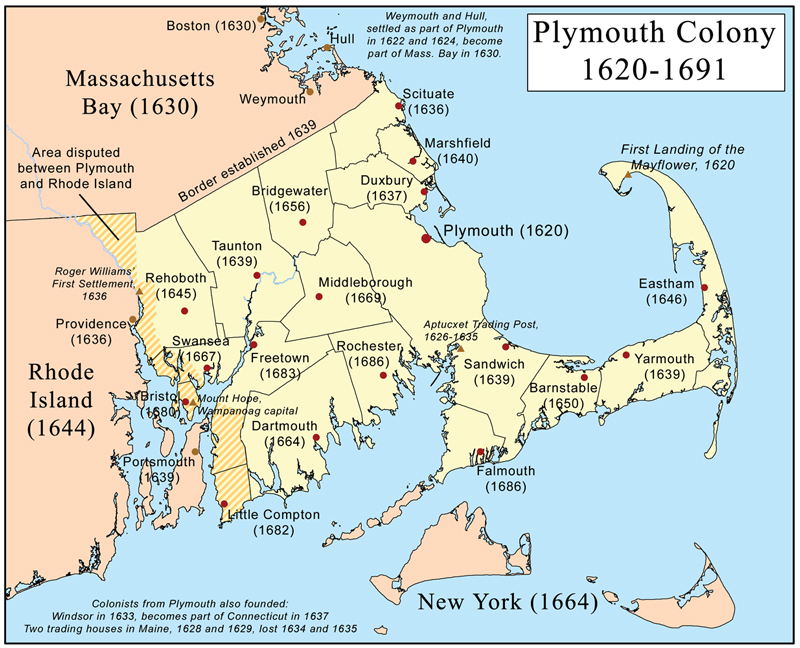 The Mayflower anchored off the coast of Cape Cod on November 11, 1620, at what is known today as Provincetown Harbor. William Bradford, Myles Standish, and fourteen other men carrying swords and muskets went ashore to find a place to settle before anyone else left the ship. Rush Revere asked Tommy, “Can you imagine landing in a place you have never been to with nothing around that you recognize in the cold, cold months of winter?” It took several trips hiking in freezing temperatures and being attacked by Indians before the search party found a place to settle. The cold, freezing temperatures were one of the most significant tests the Pilgrims faced during their first year in the New World.
The Mayflower anchored off the coast of Cape Cod on November 11, 1620, at what is known today as Provincetown Harbor. William Bradford, Myles Standish, and fourteen other men carrying swords and muskets went ashore to find a place to settle before anyone else left the ship. Rush Revere asked Tommy, “Can you imagine landing in a place you have never been to with nothing around that you recognize in the cold, cold months of winter?” It took several trips hiking in freezing temperatures and being attacked by Indians before the search party found a place to settle. The cold, freezing temperatures were one of the most significant tests the Pilgrims faced during their first year in the New World.
To understand the Pilgrims’ plight, you must put yourself in their shoes. Ask yourself, “How have you felt when you were freezing?”; or, “How would you survive with little food, inadequate clothing, and nowhere to go to escape the cold?” The Pilgrims faced these conditions when they landed in America. Rush Revere told Tommy, “These people were incredible! They had such a will to survive and thrive.” The Pilgrims wanted freedom so badly that they were willing to endure any hardship to obtain it.
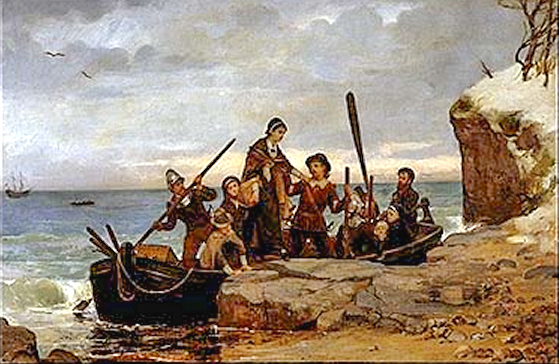 On December 20, 1620, some Pilgrims left the ship to build their new home, which became Plymouth Plantation. Rush Revere and Tommy jumped ahead to December 31, 1620, where they found William Bradford and Myles Standish discussing a new building under construction. They called it the Common House, but more about it next week. Myles told Rush Revere and Tommy that they had survived hard things and that William Bradford’s wife, Dorothy, had died in an accident aboard the MayFlower just before the search party found a place for their new home. “Her loss,” said Bradford, “has been the hardest thing.” He added these thoughts about the Pilgrims’ suffering:
On December 20, 1620, some Pilgrims left the ship to build their new home, which became Plymouth Plantation. Rush Revere and Tommy jumped ahead to December 31, 1620, where they found William Bradford and Myles Standish discussing a new building under construction. They called it the Common House, but more about it next week. Myles told Rush Revere and Tommy that they had survived hard things and that William Bradford’s wife, Dorothy, had died in an accident aboard the MayFlower just before the search party found a place for their new home. “Her loss,” said Bradford, “has been the hardest thing.” He added these thoughts about the Pilgrims’ suffering:
But I also ache for many of our people who suffer because of the cold and lack of food. Many have the chills and cough and no place to get warm. But after thirty-four days since the Mayflower arrived at Cape Cod, we have found our home. This is Plymouth Plantation. Or it will be. For now, our people must stay on the Mayflower.
It’s hard to imagine what the Pilgrims went through in their first year. Starting with almost nothing, they carved a settlement out of the wilderness. Their will to survive drove them forward; their longing for freedom gave them the resilience to succeed. These were men and women of faith who relied on God and His purposes for themselves and their posterity.
Conclusion: Fast forward to the conveniences of our day. We get cold from time to time, but there’s always a solution, someplace to go to get warm. Even the poorest among us have three things, usually in abundance, that the Pilgrims lacked: adequate food, protective clothing, and a roof over our heads. Because of the Pilgrims and their sacrifices, we live as we do today. Freedom, religious worship, and belief in God are the reasons for our abundance. What price are we willing to pay, and what sacrifice are we ready to make to preserve the legacy of freedom handed to us by the Pilgrims and the people who followed them? It’s a question we should ask ourselves. And when we have the answer, it’s a price we should gladly pay to preserve liberty and freedom for all time, for all people.
Note 1:8
Giving Thanks
Brave Pilgrims: Chapter 6
July 21, 2022
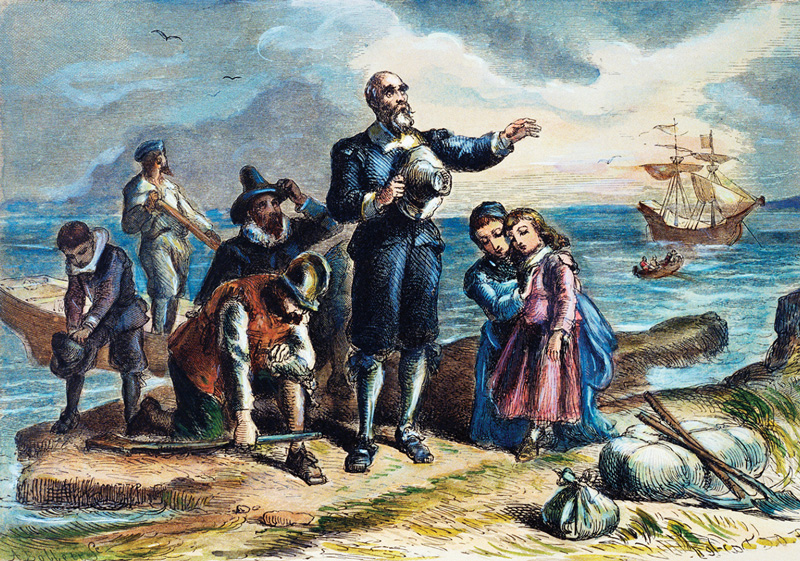 Ater returning from their adventure with the Pilgrims, who had just landed in America, Rush Revere asked Tommy what he would remember the most. Tommy answered:
Ater returning from their adventure with the Pilgrims, who had just landed in America, Rush Revere asked Tommy what he would remember the most. Tommy answered:
That’s easy. I’ll never forget the looks on the Pilgrims’ faces when they saw land again. I mean they were so happy, they were crying. Even the men were crying. I know they were tough and put on brave faces, but when they finally saw the end of their journey it was like that rough exterior melted away.
Rush Revere followed by explaining why the Pilgrims responded as they did:
Real gratitude can do that to a person. Giving thanks with all our hearts is an emotional experience. When we’re truly grateful for something, we sometimes show it through tears of joy.
Gratitude is more than giving thanks. It is a feeling of the heart and soul. Trying to describe it is nearly impossible because words don’t exist for the kind of gratitude Tommy witnessed. Rush Revere explained to Tommy that real gratitude is an experience. Trying to describe it is like trying to describe the taste of salt. You can’t because you have nothing to which to compare it. Similarly, gratitude is something you feel in your heart.
The kind of gratitude that is of the soul is interwoven with your feelings for God, recognizing that He is the source of all good things and every heaven-sent blessing. The first thing the Pilgrims did after landing in America was to kneel and thank God for a safe journey, despite the hardships and what they suffered. Grateful people do not tie gratitude to physical comforts or ease of life. For the Pilgrims, gratitude followed believing in God and the freedom to worship Him as they pleased. They felt it regardless of the cross life would call them to bear.
Conclusion: I believe that Rush had a reason for starting chapter 6 by having Rush Revere quiz Tommy about his experience watching the Pilgrims’ response after landing in America. It set up two of the three topics that remain in the chapter. Life in America would test the Pilgrims in the coming months. They would endure hardships, learn lessons that challenged their gratitude, tried their faith in God, and tested their knowledge of freedom. Would they remain grateful through it all? Would they learn the lessons awaiting them? We know from history they did. Rush intended for his readers to understand the meaning of gratitude tied to faith in God. He was also setting the stage for a valuable lesson the Pilgrims would learn about freedom.
Note 1:7
Mayflower Compact
Brave Pilgrims: Chapter 5
July 14, 2022
 Thus far, in the story, we’ve learned how “genuinely tough” the Pilgrims were, suffering hardships on the Mayflower that “modern-day people will seldom, if ever, experience.” Rush Revere believed that crossing the ocean was the first test passed by the Pilgrims. Building a colony would be the second. He was confident that “these rugged individuals would, again, find a way to overcome any trial.” Part of the reason was the Pilgrim’s reliance on God and their gratitude for every blessing. When they spotted land for the first time in November 1620, after 65 days at sea, “they knelt to give thanks to God for preserving and protecting them.”
Thus far, in the story, we’ve learned how “genuinely tough” the Pilgrims were, suffering hardships on the Mayflower that “modern-day people will seldom, if ever, experience.” Rush Revere believed that crossing the ocean was the first test passed by the Pilgrims. Building a colony would be the second. He was confident that “these rugged individuals would, again, find a way to overcome any trial.” Part of the reason was the Pilgrim’s reliance on God and their gratitude for every blessing. When they spotted land for the first time in November 1620, after 65 days at sea, “they knelt to give thanks to God for preserving and protecting them.”
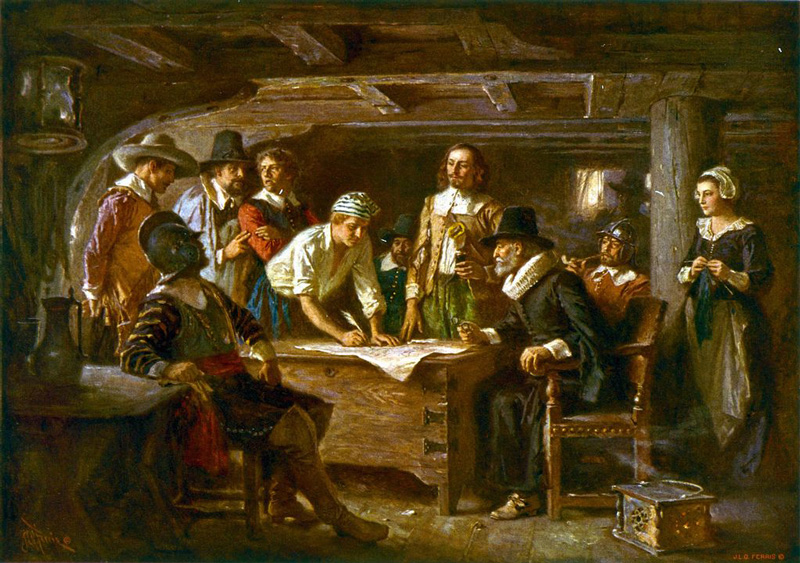 The Mayflower landed north of the Hudson River, the intended landing spot. A disagreement broke out about whether or not the Pilgrims should disembark from what is today Provincetown Harbor, their first dock, or continue south to the Hudson. They finally agreed that staying together was their best chance for survival. William Bradford requested of Captain Jones that they anchor at Cape Cod (see map—click to enlarge) to compose an agreement that would bind them all together. “We need a document,” said Bradford, “that will help create just and equal laws in our new colony. We’ll need a government and a governor, but more important, we must choose this by common consent where majority rules. Once this agreement is composed, I propose that we sign it as a promise to obey and support the rules and laws which we agree to.”
The Mayflower landed north of the Hudson River, the intended landing spot. A disagreement broke out about whether or not the Pilgrims should disembark from what is today Provincetown Harbor, their first dock, or continue south to the Hudson. They finally agreed that staying together was their best chance for survival. William Bradford requested of Captain Jones that they anchor at Cape Cod (see map—click to enlarge) to compose an agreement that would bind them all together. “We need a document,” said Bradford, “that will help create just and equal laws in our new colony. We’ll need a government and a governor, but more important, we must choose this by common consent where majority rules. Once this agreement is composed, I propose that we sign it as a promise to obey and support the rules and laws which we agree to.”
Rush Revere whispered to Tommy, “This is a key moment of American history. The agreement that William Bradford is proposing is the Mayflower Compact. It is said to be just as important to American history as the Declaration of Independence.” Rush Revere asked Bradford what he thought the document would do. Bradford responded:
It’s a good question. By signing this agreement everyone on this ship is agreeing, when we land, to live and work together so that we can survive. It will be a brief outline of self-government. We’ll still profess our allegiance to King James but we also need just and equal laws suited to our new settlement and new way of life. We are far from England and so we must do what is convenient for the general good of the colony.
Conclusion: The Pilgrims’ landing in New England eventually led to the creation of the United States of America. It took another 150 years, during which time the Pilgrims and later colonists learned the meaning of liberty and how to preserve it. It would require another generation of not one but dozens of noble souls to formalize and put into writing what the colonists learned by experience. The Declaration of Independence and the US Constitution were the results of that effort. The Declaration sets forth the liberty principles we live by as free Americans. The Constitution guarantees and protects them.
Note 1:6
Putting God First
Brave Pilgrims: Chapters 3-4
July 7, 2022
The following two chapters set the stage for a single idea, which Rush introduces in the final paragraphs of chapter four. Up to that point in the story, he used the pages describing what life was like on the Mayflower as the Pilgrims made their way to the new world, a journey of more than 3000 miles. The detail is stunning, and it’s apparent Rush did his homework. Without his description, we couldn’t imagine the Pilgrims’ sacrifice on board the ship. Rush tells the story as a participant, living through the experience with the Pilgrims, which brings up another lesson from the Rush telling of the story. Rush Revere and the children, Freedom and Tommy, returned daily to the comforts they enjoyed in 21st century America. The Pilgrims did not. The hardships they endured defined their lives.
We perceive Rush’s intent. The book, Brave Pilgrims, describes life in the 17th century, relating what the Pilgrims endured and could not escape. They adapted to their circumstances and eventually prospered whatever the obstacles. Adapting is a characteristic of human beings that enables their survival in a harsh world. It’s how we survive the vagaries of a place that cares nothing for life or liberty. Rush spoke about it often on his radio program, especially concerning global warming or what advocates call climate change today. Human beings adapt. It’s how we survive!
In these chapters, Rush also introduces us to the main characters in Mayflower history: Elder William Brewster (the Puritan’s religious leader and man they turned to for guidance and strength); Captain Myles Standish (he would handle military matters for the colony in America); and Captain Christopher Jones (captain of the Mayflower). William Bradford, we already know, although we’re learning more about him and his faith that God would deliver them safely to the New World.
The Mayflower was small by today’s standards, measuring only 100 feet by 25. The Pilgrims lived together in the ship’s dank and dark crawl space called the “tween” deck. The Mayflower was not a passenger ship. It was a cargo ship. There was little light, and no ventilation in the cramped space converted into living quarters for a hundred people. Every family had a small living area but little privacy. People sat with spittoons close by when the boat rocking was too much, and they got sick. Tommy compared the stench of the Pilgrim’s living quarters to his locker room at school. Rush Revere couldn’t stand upright without bumping his head on the ceiling. And so it went, on and on for two chapters. Living conditions on board the ship were appalling by any measure.
Rush described other incidents that made up life on the Mayflower. For example, a man fell overboard when he came up for air and found himself in a storm. Only the quick thinking of captain Jones saved him. Tommy had the same experience, falling overboard only to be saved by Myles Standish. Sea travel in the 17th century was hazardous. It took a determined people with a just cause to risk everything for what the New World offered them. Unlike Rush Revere and his companions, who knew the Pilgrims would arrive safely because of history, William Bradford and the people in his group did not. Still, they persisted in following their dream of freedom in America.
Everything we read about in chapters three and four leads to this affirmation by William Bradford, in which he explained why the personal sacrifice was worth it as he pledged himself to the cause:
I will do everything I can to help make our colony, our New World, our land of America a place where religious freedom comes first. If we can become a nation under God and put our trust in Him, I believe we shall prosper (emphasis added).
Rush Revere “pondered those words and realized how important they would be to our Founding Fathers.” Indeed they were, as history now bears witness. In George Washington’s first year as president, he declared what his life affirmed: “It is the duty of all nations to acknowledge the Providence of Almighty God, to obey his will, to be grateful for his benefits, and humbly to implore his protection and favor.”
Conclusion: Notice the condition in Bradford’s words: If the Pilgrims were to prosper, they would have to become a nation under God and put their trust in Him. What was true then is true today. It’s what we declare in the 31-word Pledge of Allegiance: “I pledge allegiance to the flag of the United States of America, and to the republic for which it stands, one nation under God, indivisible, with liberty and justice for all.” Every other recorded model of government has ended in tyranny with liberty and justice for none except the despots who rule. The same condition continues in our world today. Think of Russia under Putin, China, North Korea, Cuba, and Venezuela. As free Americans, we live under God and put our trust in Him. We have done this going back to the Republic’s founding days. May it ever be so!
Note 1:5
Freedom Requires Sacrifice
Brave Pilgrims: Chapters 1-2
June 30, 2022
This note is the last from the first two chapters of Brave Pilgrims. I return to two quotes used in note #3 but with a different emphasis. William and Dorothy Bradford left their three-year-old son behind when they embarked on their journey to the New World. One of Rush Revere’s students, Freedom, commented on what she saw as the Bradford’s were about leave: “I could tell they loved their son, more than anything. They only wanted what was best for him. It took courage for the Pilgrims to leave their homes and travel into the unknown. But it takes more courage to travel into the unknown and leave someone you love behind.” Rush Revere responded with this (emphasis added):
Well said, Freedom. And who knows, maybe they thought they could come back for him someday. Or maybe someone else had planned to bring him to America when he was older. I don’t know. What we do know is that more than anything, the Pilgrims like William and Dorothy Bradford were real people ready to give their lives for their freedom, no matter the cost, no matter the pain, no matter the sacrifice.
Is freedom truly that valuable? Rush thought so and wanted the children reading his books to arrive at the same conclusion. At this point in the book, Rush didn’t explain the why behind what he believed. He was content to make the observation. Pilgrims were real people willing to sacrifice everything to come to America in search of religious freedom. Young people don’t always need the why they will learn through life and experience. At their age, it’s more important to understand that freedom is worth preserving, even if it means sacrificing everything. It’s also important to teach young people that thousands of men and women, young and old, have sacrificed their lives to protect the freedom we enjoy today.
The Pilgrims understood freedom better after losing the right to worship God the way they wanted. They were ready to sacrifice their lives for the liberty King George took from them, “no matter the cost, no matter the pain, no matter the sacrifice.” The vital takeaway from the first two chapters of Brave Pilgrims is this: A life without freedom is no life at all. The why will come later, as we shall see. It may be a little different for everyone, but it all revolves around the freedom to choose your way in life without fear of intrusive, unwanted supervision.
For his 30-plus years on the radio, hardly a day passed that Rush didn’t talk about the value of freedom. I end this section with a thought from Rush explaining why America is exceptional among nations:
There never has been a country founded in goodness—blessed by God, I happen to believe—that became a force for good the world over. It became a superpower within its own borders, and furthermore, stood for and defended liberty and freedom everywhere else in the world. But for young people, the answer is, well, there just hasn't been a George Washington in Cambodia yet, and there hasn't been a Thomas Jefferson in Zimbabwe, and there hasn't been a Benjamin Franklin in Burma, and there hasn't been a James Madison in Colombia. They were special people. They were special people alive for the most part at the same time. You talk about a confluence of events and people alive in the same place at the same moment in history, that is the simplest way to explain, particularly to young people, what is really special about this country.
Conclusion: And so it is. We do young people a disservice with disastrous consequences for them and the country if we don’t teach them to believe that America is everything Rush described above and more. Maybe it’s time to enroll in a free online course at Hillsdale College. Rush felt and often said, “learning never stops.”
Note 1:4
Religion Must Be Protected
Brave Pilgrims: Chapters 1-2
June 23, 2022
In Note #2, I discussed what freedom is not. In the exchange between Rush Revere and Liberty on the subject, the time-traveling horse said this about the Puritans and religious freedom:
From what I heard near the cheese cooler, King James didn’t want the Puritans to have the freedom to choose what they believed. He just wanted them to stay with the Church of England and do exactly what he said, or else! But the Puritans believed that the Church of England practiced many things that the Bible never taught. So some Puritans called themselves ‘Separatists,’ because they wanted to separate themselves once and for all from the Church of England. I even heard one of the Puritan women say that the king threw an entire family into prison just because they chose to believe differently than he did.
The Puritans left England because King George dictated what they could and could not believe, including doctrines and practices not found in the Bible. Thus they went in search of the freedom to worship as they pleased. Liberty’s comment about the Puritans made Rush Revere feel ashamed for trying to force him to do something against his will (see Note #2).
Religious freedom is a crucial dimension of American exceptionalism (see Note #1). The religious principle of helping your neighbor is why the United States is always first on the scene when disaster strikes somewhere in the world. It’s who we are. Embracing God and religion made us so.
Religious freedom is the first right mentioned in the 1st Amendment to the US Constitution. It is first (and first again) because it encompasses two additional freedoms: speech and assembly. These three freedoms (religion, speech, and assembly) allow us to decide for ourselves what to believe and how to live according to our faith in God and what He expects of us. We are free to worship Him as we please without fear of being acted upon by an overreaching, powerful government.
Religious freedom was first in importance to the Founders because it allows people to put God first in their lives by living the first and second great commandments: love God and your neighbor as you love yourself. A prevailing philosophy among some in our society is to put themselves first and everyone else, including God, somewhere below. Religion cures this malady, except these people have, for the most part, rejected God, which they have a right to do because of religious freedom.
Religious freedom was first because it unites people in their worship of God. Any power strong enough to trample upon your rights of worship is powerful enough to trample on mine. I must come to your defense, and you must come to mine regardless of differences in how we worship.
Religious freedom was first because it inspires people to act charitably toward their neighbors. Before the advance of big government and the “welfare state,” individuals, religions, and communities took care of each other (i.e., Americans took care of Americans). In giving such service, we were better and kinder. Today, many among us, including many young people, expect the government to care for the poor. After all, don’t we pay taxes for that purpose? As a nation, we lose something when religious conviction takes a back seat to government largess, forcibly taking from some and giving to others. Involuntary giving does not bless lives. It does not make people better.
Religious freedom was first because it shapes values. It declares for objective morality against moral relativism. An absolute moral law does not exist without an absolute moral law-Giver. Thus religious freedom declares for God with all its ramifications for a society built on love, not force.
Conclusion: Rush began the first book in the Rush Revere series by explaining why the Puritans came to America. If we are to preserve anything in this country, it must start with defending religious freedom. If we lose it, it will be hard, if not impossible, to maintain the values we embraced at our founding.
Note 1:3
Adversity Is Part of Life
Brave Pilgrims: Chapters 1-2
June 16, 2022
When William Bradford (1620) asked Rush Revere if he would join the pilgrims on their boat, the Speedwell (another story), the time traveler didn’t know how to answer. Bradford put both hands on Rush Revere’s shoulders, looked straight into his eyes, and with great sincerity said: “There is no need to fear. Take courage. God will bring us to the New World. Whatever adversity we face will only make us stronger.” In my Kindle version of the book, thousands of readers have highlighted this comment. I know because Kindle has marked it with its Popular Highlight format consisting of underlined dots.
Every year at Thanksgiving, Rush told the story of the Pilgrims and what they sacrificed by leaving their homes and coming to the New World. Every year I, along with you, looked forward to the telling. For millions of people, it was a highlight of the Thanksgiving holiday. Most of us listened, sitting comfortably in our homes with family and friends, made possible by William Bradford and people like him who gave up everything for freedom.
In Brave Pilgrims, Rush Revere noticed tears in William Bradford’s wife’s eyes as he approached the couple. Bradford explained after Dorothy excused herself: “My wife, Dorothy, and I have decided to leave behind our three-year-old son, John. The journey is expected to be dangerous. We have wrestled in mighty prayer to know whether or not we should bring him. We believe that God has told us that John would be safer if he stayed. He will be cared for, but, as you can imagine, the decision has been particularly painful for Dorothy.”
The lesson came after Rush Revere and Liberty time traveled back to the classroom and asked the students, “If you were William Bradford, would you have taken your three-year-old son on a death-defying voyage across a tempestuous sea?” One of the students, named Freedom, a young girl with dark, determined eyes, “spoke from somewhere deep within and said, I could tell they loved their son, more than anything. They only wanted what was best for him. It took courage for the Pilgrims to leave their homes and travel into the unknown. But it takes more courage to travel into the unknown and leave someone you love behind.”
In the book, Rush’s point was to emphasize that these were “real people ready to give their lives for their freedom, no matter the cost, no matter the pain, no matter the sacrifice.” Adversity has a purpose, but not for the sake of it. God didn’t put us on earth to suffer the trials of life for no reason. He could have made it otherwise. Because He did not, we know that tribulation, especially endured with a higher purpose, refines us and makes us the people God wants us to be.
Rush talked about life’s character refining moments throughout his career, but especially during the last year of his life. I give a tender example in next week’s segment review (June 20, 2022). For now, I’m thinking of segment titles like “Everything That’s Happened to Me Is a Blessing” (February 12, 2020) and “Just Waking Up Each Day Is a Blessing” (May 26, 2020).
Conclusion: We should embrace life’s struggles with resolve. They represent a chance to grow and fulfill the high purpose of achieving a character worthy of God’s presence. Rush became such a person. You know he did because with all that Rush went through during the last year of his life, he continued to sacrifice for what he believed in (God, Family, and Country). We knew it because of the days he sat behind the Golden EIB microphone serving the country he loved when he probably should have been somewhere else. We knew it more because he was happy and always, always grateful. I once heard that gratitude is a “feeling of the heart and soul.” It was for Rush. It should be for each of us.
Note 1:2
What Freedom Is Not
Brave Pilgrims: Chapters 1-2
June 9, 2022
The first two chapters of Brave Pilgrims introduce four concepts you should consider in understanding American history:
- Forcing people against their will is tyranny, not freedom.
- Adversity is a necessary part of life.
- Freedom of religion means you don’t have to choose between following your faith and living laws not in harmony with your faith.
- Freedom requires sacrifice.
This week, I look at what it means when someone tries to force you against your will.
Have you noticed that we usually talk about liberty and freedom together? Speaking generally, we rarely separate the two ideas. In 2012, Rush responded to what he called Obama’s “Condemnation Tour,” suggesting that Obama was “not qualified” to talk about liberty and freedom with the leaders of other nations because he did not (and does not) understand the role of America as a superpower. Obama does not understand that “this nation stands for freedom and liberty all over the world,” and Obama does not understand that freedom and liberty are not “universal principles” as he claims. Rush explained: “We secure and protect liberty when we defend it and secure it around the world. We want every human being to be free. We want every human being to have liberty. It’s not an imposition. It is called liberation from tyranny.”
Rush also pointed out what should be evident to most people: Liberty and freedom are not universal principles. They are not something people have “anyway.” Rush responded to Obama:
No, they don’t, Mr. President. We’ve had to fight for ours. That’s how this country was founded. It was the pursuit of liberty and freedom, sir. And ours is only as strong as our willingness to fight for it, and Lord knows we never expected to have to fight our own president to secure it.
Notice that Rush referred to liberty and freedom as a single concept (“it”). Thus he was emphasizing that you cannot separate the two. Liberty is about choice. Freedom is about acting without being acted upon (i.e., by government officials, including those in charge of the anti-America “administrative state”). The liberty to choose without the freedom to act on your choice is neither liberty nor freedom. The two concepts are a package deal. Except on paper, the one cannot exist without the other.
Freedom is about acting on your choices without compulsion, including the freedom to say what you believe. Freedom of speech is only one aspect of freedom but is critical to all the rest. In other words, if you are not free to say what you believe, you are less free to act on what you think.
The transgender issue is a good example, which, as used here, illustrates a tactic of the left to deny or attempt to deny freedom of speech to anyone who disagrees with them (see also this week’s segment note, Review #9). Controlling what you say precedes controlling what you think. Today we are forced to use language against our will and our conscience. We are forced in the sense that not to use the correct language (i.e., a transgender man or woman’s pronouns of choice) or express a different opinion on the issue of transgenderism or gender dysphoria may result in severe consequences imposed by the left. These consequences include but are not limited to losing your business, your job, or both.
Conclusion: Liberty, the name of Rush Revere’s talking horse (read the books), said it best when he asked Rush Revere this question: “Forcing someone else to like the things you like, or to do the things you do, is not what freedom is about, is it?” Rush Revere answered humbly: “Of course not.” Then he added: “And just for the record, I hope you never feel forced to do anything. I’m glad you’re a curious horse. And I’m especially glad the Pilgrims had the courage to believe and think for themselves. Otherwise, America might not be a free country.”
Note 1:1
American Exceptionalism
Brave Pilgrims: “A Note from the Author”
June 2, 2022
Rush defined American exceptionalism many times over the years. It is a concept every American should understand and embrace because of what it means to liberty and freedom, which inspire the best in all of us.
Thus it was no surprise that in the introduction to Brave Pilgrims (“A Note from the Author”), Rush focused on American exceptionalism, what it is, and what it means. The explanation always includes three basic ideas:
- America is an exception in world history: “The sad reality is that since the beginning of time, most citizens of the world have not been free.”
- America is an exception among nations because “it is a land built on true freedom and individual liberty, and it defends both around the world.”
- America is an exception because “the Founders of this phenomenal country believed all people were born to be free as individuals.” Born to be free! In other words, our rights, privileges, liberties, and freedoms all come from God, the Creator of us all (something Rush affirmed often).
What is true freedom as opposed to freedom generally? True freedom means living your life without compulsory interference (i.e., government restrictions not approved by the people). For example, no one in Russia, China, Venezuela, or Cuba, is genuinely free, no matter how much power, wealth, or influence he may have. Everyone except the supreme ruler answers to the state on some level and risks being eliminated if he crosses the state’s wishes. Americans are accountable only to God, themselves, and laws made through their Representatives. Some of this is changing now, but only because too few people have stood up to political correctness run amok, wokeism, cancel-culture, and leftist ideology, which now permeates every level of society. The good news is this: Parents across the nation are waking up and fighting the left’s radical ideas and destructive norms.
What is individual liberty as opposed to liberty generally? Liberty is about choice. It is the right of a people to make decisions for themselves without interference from the government. Individual liberty is the right to determine your path in life according to your conscience. You are accountable only to God for your actions. Thus true liberty, individual liberty, is inherently moral.
Why are Americans first on the scene when there is trouble in the world? Because Americans have tasted true freedom and individual liberty and, as Rush often said, “We want the best for everyone.”
Obama and the left have a distorted view of America and thus cannot understand American exceptionalism as defined by Rush. The definition they apply to it is false. In Tribute, I explained it thus: “Leftists twist everything to mean what they want to support their agenda. They redefine the concept of American exceptionalism, claiming that Americans believe they are better than other people. Americans do not.” (In chapter 13 of Tribute, “The Most Dangerous Man in America,” I compare Rush’s concept of American exceptionalism with Vladimir Putin’s and Obama’s.)
Conclusion: I believe Rush began Brave Pilgrims, the first book in the Rush Revere series, teaching about American Exceptionalism because it defines America as founded. It explains what America has always been and, by God’s grace and the will of the American people, always will be.
Send memories of Rush or comments about this website to comments@TributeToRush.com
